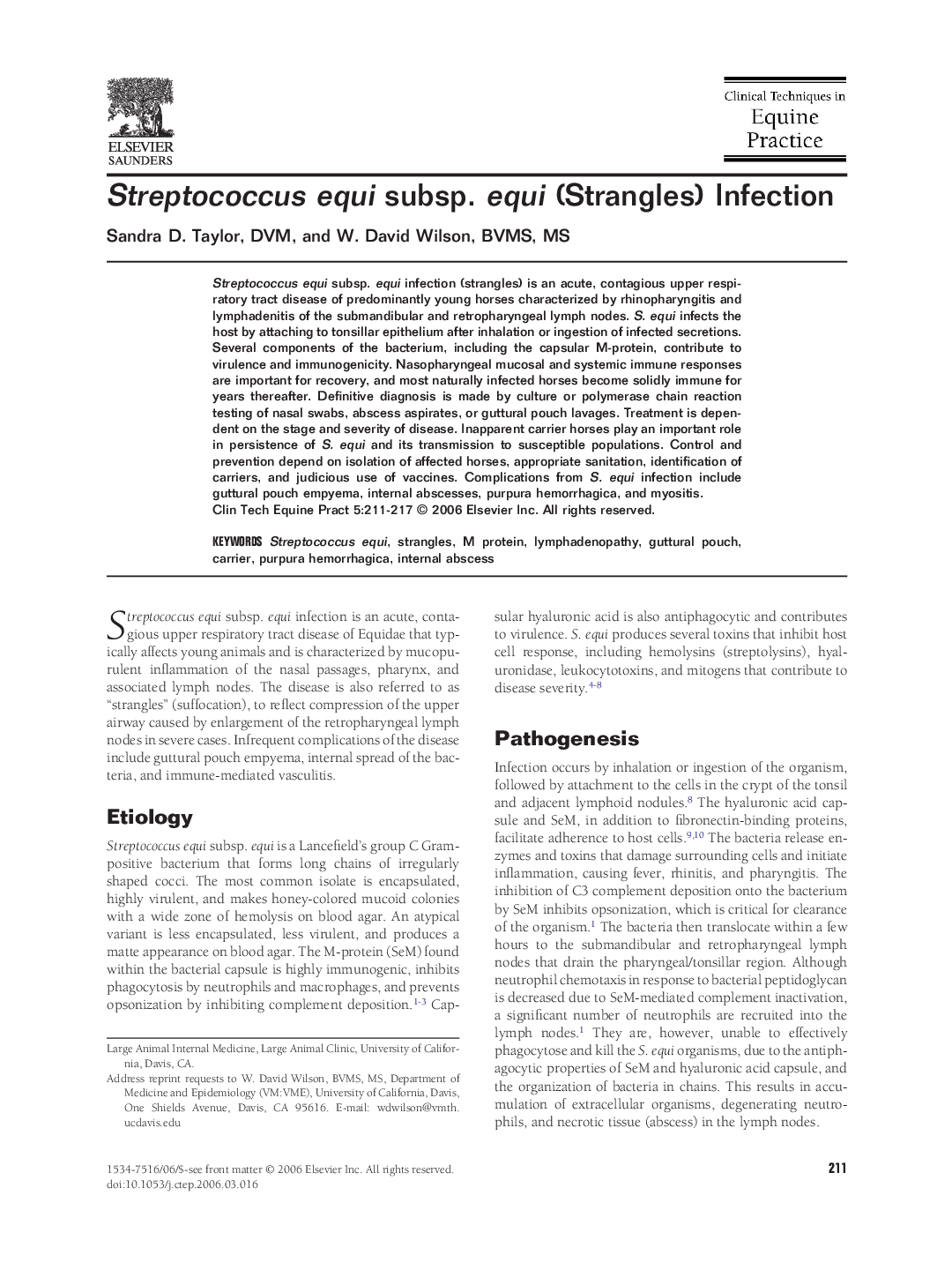| Article ID | Journal | Published Year | Pages | File Type |
|---|---|---|---|---|
| 2393249 | Clinical Techniques in Equine Practice | 2006 | 7 Pages |
Streptococcus equi subsp. equi infection (strangles) is an acute, contagious upper respiratory tract disease of predominantly young horses characterized by rhinopharyngitis and lymphadenitis of the submandibular and retropharyngeal lymph nodes. S. equi infects the host by attaching to tonsillar epithelium after inhalation or ingestion of infected secretions. Several components of the bacterium, including the capsular M-protein, contribute to virulence and immunogenicity. Nasopharyngeal mucosal and systemic immune responses are important for recovery, and most naturally infected horses become solidly immune for years thereafter. Definitive diagnosis is made by culture or polymerase chain reaction testing of nasal swabs, abscess aspirates, or guttural pouch lavages. Treatment is dependent on the stage and severity of disease. Inapparent carrier horses play an important role in persistence of S. equi and its transmission to susceptible populations. Control and prevention depend on isolation of affected horses, appropriate sanitation, identification of carriers, and judicious use of vaccines. Complications from S. equi infection include guttural pouch empyema, internal abscesses, purpura hemorrhagica, and myositis.
